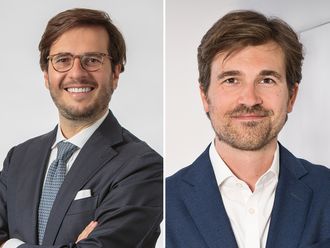Dr Jamal Sanad Al Suwaidi, director-general of the Emirates Centre for Strategic Studies and Research, refers in his book — The Prospects of the American Age Sovereignty and Influence in the New World Order — to singular features that will determine the order of power in the next era.
Economy and technology come at the top, along with seven other factors, all of which are based on data analysis and accurately documented statistics.
The findings underlining Dr Jamal’s book jump into my mind as I was watching a strike by London Underground workers last week, which almost paralysed activities in one of the capitals of business and finance. It was averted only because workers in over-ground transport continued to work. To know the reason behind the link between Dr Jamal’s book and the labour strike in London, it is vital to refer to the reason for the 48-hour strike that turned the lives of users to hell. The strike was in protest at plans by the London Underground Management to cut hundreds of jobs at ticket offices due to advances in automated technology. This prompted the rest of employees at Metro stations to show solidarity with their dismissed colleagues.
Three years ago, almost similar protests broke out in Egypt after a decision to unify and broadcast prayer calls through modern technology and which would have cut 200,000 jobs, all of whom muezzins. The idea was postponed after the 2011 events.
Complex equation
Surely, countries face a major problem in creating a balance between tech advances and securing high employment and economic growth numbers. There are also the social implications of such a shift, and each country’s position will be determined by success in the proper management of this complex equation.
On the one hand, the modern age requires the speedy use of high technology, a move that will have economic and social repercussions that may contribute to strengthening the power centres on the global stage. But they can also contribute to additional complications in case of an inability to solve problems caused by these rapid developments.
This will in turn lead to the formation of new alliances on the world stage, which gives great importance to the conclusions of Dr Jamal’s book, where he mentions that the “Economy will be the real driver for change and its mechanism according to the order of powers, whether on top of the New World Order or at the level of medium and small powers”.
In brief, this clearly means that the relationship between economy and technology and the resulting consequences will include all countries and regions, whether it be the US, the EU and China as major economic powers or small nations with their excessive populations and need to create more job opportunities.
If Britain, which provides thousands of jobs annually to new arrivals from Eastern Europe and the developing world, faces the dilemma of reconciling the requirements of modern technology with economic and social repercussions, as was manifested in the underground metro strike, Third World countries will find it difficult to establish a suitable footing in the new world order.
Traditional systems
The book indicates once again that “The most important factors that determine the order of future powers will depend on the increasing reliance on technology and non-conventional production systems, at the expense of traditional systems, which will decline”.
In addition to the relationship between technology and economy, the writer links them with no less important issues such as energy resources, transport, education, culture and military development, whose importance it was assumed will deteriorate with the collapse of the Eastern bloc more than 20 years ago and the supremacy of one single order represented in the capitalist system.
Dr Jamal has come up with a very important conclusion, when he say: “The increasing reliance on technology can contribute to finding solutions to the main problems at a time of increasing pressure on the capitalist system in order to develop it further, and enable it to continue and survive”.
The conclusion bears a strategic dimension regarding prospects for a New World Order. The author has made an immense effort to specify the characteristics shaping the world over the next 50 years.
Dr Mohammad Al Asoomi is a UAE economic expert and specialist in economic and social development in the UAE and the GCC countries.












